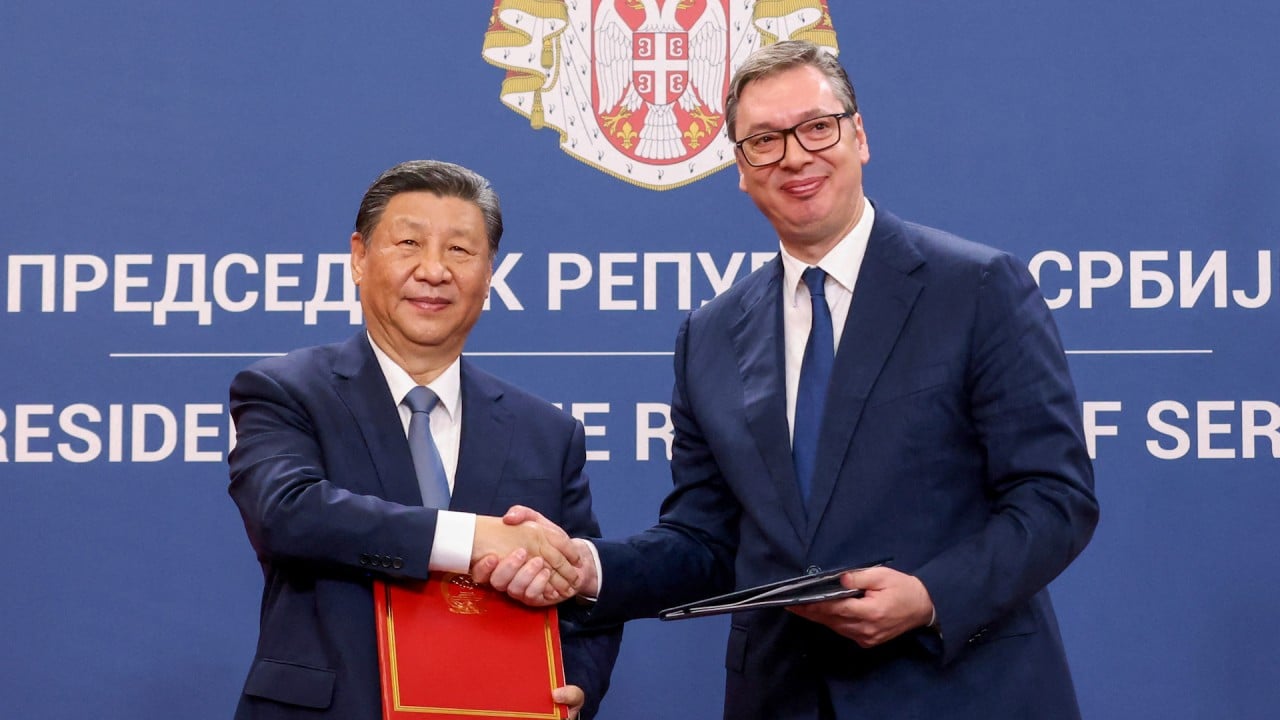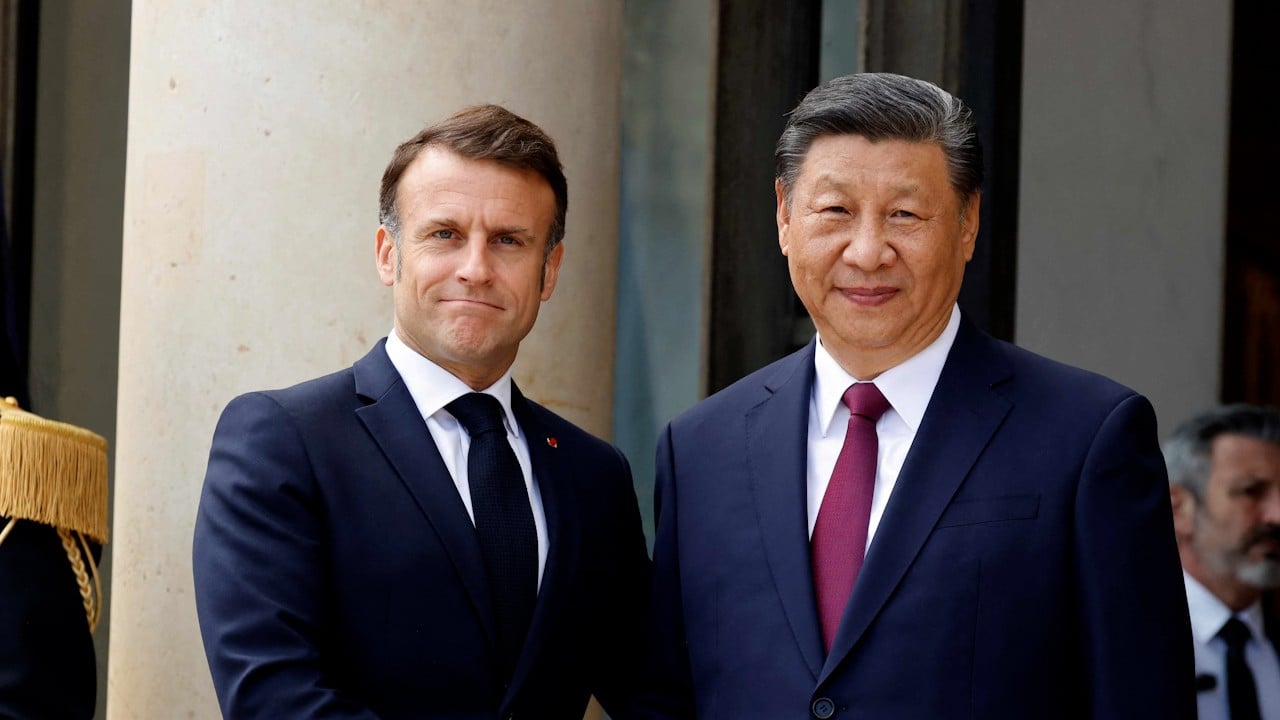
How Xi’s visit exposed the split in Europe over China
- For the EU, divisions between countries in western Europe and central and eastern nations present a strategic dilemma and a threat to the economic union
- For China, it’s now clear which states it can draw upon in its grand strategy to reassert global power
Put differently, she was warning of trade retaliation unless China adopted a new approach to its exports and imports. It was a curveball for France and China, and a sign of how different Europe had become, as Xi returned after five years.
In western Europe, the optimism that once surrounded a state visit by a Chinese leader has all but faded. Conversations about cooperation or development have turned into whispers amid a growing sense of friction, distrust and unshakeable divergence.
Serbia’s future now hinges on a closer, deeper relationship with China, not the West.
In the eyes of Serbia, the road to growth and prosperity goes through Beijing, not Washington or Brussels. This is a huge boost for China. A new cohort of countries is aligning around the world’s second largest economy.
But for the European Union, Serbia’s reorientation presents a strategic dilemma. Von der Leyen has been pushing for EU enlargement, focusing on drawing in the Balkans, which include Serbia. Is this still possible as Belgrade moves closer to the east?
In France, the new dynamic was also on display, but in a different way.
The elephant in the room is the US. The US-led order, built on the transatlantic alliance, while being squeezed, remains intact.
This means that, when Xi returned to China, there would have been two Europes in his mind: one aligned with the US, the other with China. This is a massive change from five years ago, when there was one Europe.
For China, this represents a huge opportunity but with a limited runway. The gems in Europe are the large economies. But if these are off-limits to China and its investments are confined to the smaller economies in Eastern Europe, its strategy would have to be quite different.
For the EU, and the collective West, the new sources of divergence are not just immigration or Ukraine, but also China. The China question will play a far greater role than any other issue, affecting the very stability and future of nations. The EU is being forced to keep members in check regarding China, or risk the economic union breaking into pro-US and pro-China tribes.
But fast-forward five years, and in the post-pandemic world, with wars raging in Europe and the Middle East, the Chinese are witnessing a fracturing in the European landscape. The openness towards China, once championed by Brussels, is shifting eastward. As countries like Serbia and Hungary look forward to greater cooperation with China, others like France and Germany are setting limits.
For China, the stakes could not be higher. In Serbia, Xi said: “We shall jointly confront hegemony and the politics of power.” For China, its new alliances will be instrumental in taking on the United States.
Xi’s trip to Europe, with visits to France, Serbia and Hungary, was about two aspects. First, seeing which doors are open and which are locked shut, something only a head of state can accurately gauge. And second, it was about drawing in nations, and using them as part of a grand strategy, as China seeks to reassert its power on the world stage.
Abishur Prakash is the founder of The Geopolitical Business, an advisory firm in Toronto



